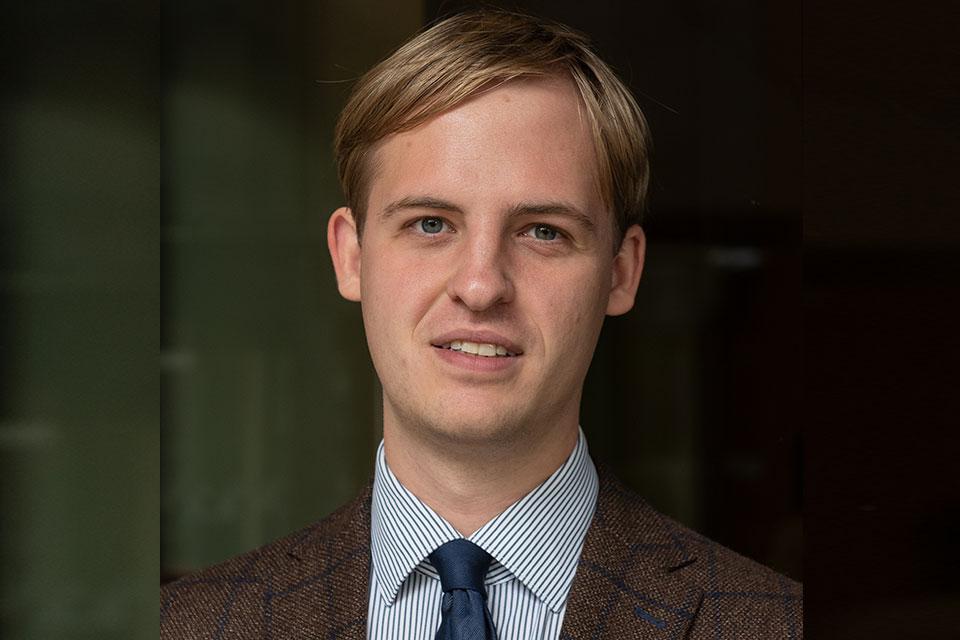DPhil student Péter Juhász is to present his physics research in Parliament to a panel of expert judges and politicians, as one of the finalists in STEM for BRITAIN 2022.
The Parliamentary and Scientific Committee runs the unique, annual event in collaboration with a number of distinguished scientific, learned and professional organisations. The event showcases the best of UK scientific research, being carried out by early career researchers, and is in the only national competition of its kind.
Ultracold quantum gases
Péter’s poster describes his studies on ultracold quantum gases, aiming at understanding how interacting quantum systems evolve, with the ultimate goal of developing more resilient quantum computers.
Quantum computers are incredibly fast. Scientists hope that one day they will be used to the great advantage of everyone, by being able to run computations that take an impractically long time on classical computers. Proposed applications include computing the structure of molecules to aid drug design and discovery, optimising engineering designs for carbon efficiency and advancing artificial intelligence. Currently though, their use is limited. In quantum computing, a qubit or quantum bit is the basic unit of information; it is the quantum mechanical analogue of a classical bit. However, qubits quickly lose information to the environment which hinders their use for complex computations. This is what Péter and his team are aiming to solve – understanding this information loss so as to be able to control it, and maybe even use it to our advantage. To do this, he studies the coldest material in the universe – magnetic quantum gases, cooled down to just a few billionths of a degree above absolute zero temperature, −273.15C.
Research-informed policy
Péter is a finalist in the Physics session of the competition, which is sponsored and supported by the Institute of Physics; the professional body and learned society for physics in the UK and Ireland.
Speaking about his interest in entering STEM for Britain, he said: 'I hope to draw the attention of policymakers to the important contributions made by scientific research in achieving policy goals.
'The impact of scientific research can reach far beyond the labs – it can form economic policy or foreign policy, for example. I personally am looking forward to seeing some excellent research being showcased, that has the possibility of making the world a better place.'
Stephen Metcalfe MP, Chairman of the Parliamentary and Scientific Committee, said: 'This annual competition is an important date in the parliamentary calendar, because it gives MPs an opportunity to see the work of a wide range of the country’s best young researchers. These early career scientists, engineers and mathematicians are the architects of our future, and STEM for BRITAIN is our politicians’ best opportunity to meet them and understand their work.'
Judging will take place in Parliament on Monday 7 March.

